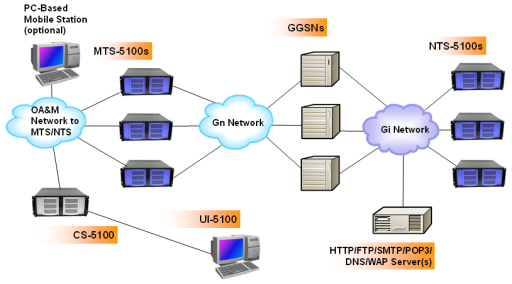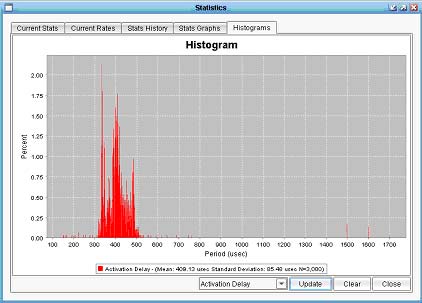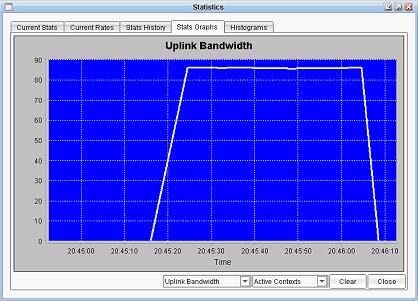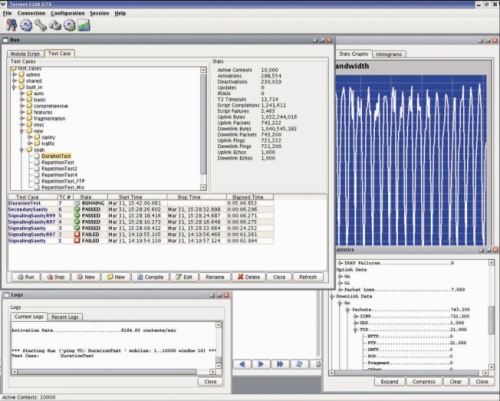The Torrent 5100 GGSN Test System actually consists of a suite of products which work together in a unified manner to provide a realistic, high performance, linearly-scalable GGSN.
The Torrent 5100 GTS consists of:
- MTS-5100 (Mobile Traffic Simulator)
- NTS-5100 (Network Traffic Simulator)
- CS-5100 (Control Server)
- PC-based Mobile Station (optional, to run PC applications via the MTS-5100)
- GS-5100 (GGSN Simulator, not shown, supplies GGSN functionality if needed)

 |
Torrent 5100 GTS Product Brochure (PDF) |
Key Benefits
* Reduced field outages
* Reduced development and test cost
* Improved GGSN and CGF software quality
* Improved GGSN performance characterization
* QoS testing and SLA assurance capability
* VoIP testing
Key Features
* Realistic simulation
The main feature of the system is that it simulates mobiles and the application data traffic that they generate as precisely as possible.
* Programmable mobiles
One of the key aspects of the Torrent 5100 GTS is that the behavior of mobiles can be programmed using a simple scripting language, an example of which is shown below:
attach sgsn sgsn1 activate apn test http_get url http://test.mobilemetrics.net deactivate
* Industry leading performance
A single MTS-5100 Mobile Traffic Simulator is capable of generating activation rates of over 40,000 contexts/sec and over 550Mbps of full-duplex data. Because the system scales linearly, traffic intensity may be increased simply by adding more hardware.
* Full Automation Support
Test cases may be written to automatically configure and monitor the system under test (via ssh, telnet, ftp, etc), in addition to performing UMTS/GPRS tests.
* Highly parallel simulation
Parallelism is supported on numerous levels, but the most unique support for parallelism is that mobile subscribers may perform more that one operation at once. For example, they may perform perform an inter area handoff (IRAU) during an HTTP page get:
attach sgsn sgsn1
activate apn test
parallel:
http_get url http://test.mobilemetrics.net
irau sgsn sgsn2
parend
deactivate
* Linear scalability
Any traffic profile can be scaled linearly by simply adding more computing hardware. A novel feature of the architecture is that this can be done without any test case changes.
* QoS testing capability
A unique feature of the system is that in addition to allowing you to see the mean and standard deviation of various statistics, it also allows you to see the entire histogram for that statistic with extremely high resolution. Below, for example, we can see that the average activation delay is about 400 usec and that the standard deviation is low.

This is particularly useful when looking at HTTP for example because you can observe whether or not certain mobile subscribers were starved for bandwidth. This feature allows you to study the quality of service received by various subscriber groups and see how well the system is prioritizing interactive traffic over background traffic, etc.
* Error injection
The Torrent 5100 permits a significant number of error scenarios to be tested with it's error injection feature. This facility allows packets to be randomly dropped, delayed, or corrupted in a controlled manner (e.g. only corrupt uplink control packets with probability 0.1, and delay downlink data packets with probabilty 0.05 for a mean of 500ms).
* Virus injection
Torrent 5100 GTS is a unique tool - customers tell us there's no other tool that combines traffic simulation with virus injection. Users can inject virus files or strings into uplink messages in the following applications:
- MMS - Insert a virus file or insert hex data into an MMS message.
- SMTP - Insert hex data into the message, or convert a virus file into MIME format and send it.
- PTT - Alter RTP audio by insert virus hex strings or files of hex data.
- HTTP Post - Insert virus files or strings. Large viruses (up to 64KB) can be injected.
* Hierarchical, detailed statistics
Extensive statistics are captured by the system and are organized in an innovative hierarchical manner to allow both the big picture and the finer details to be seen more clearly. This is yet another feature found exclusively feature of our product. All statistics may be graphed as illustrated below:

* Support for multiple SGSNs
Each traffic generation card simulate hundreds of SGSNs; with multiple cards, thousands of SGSNs can be simulated.
* Dynamic Routing Protocol Support
In addition to static routing, both RIP and OSPF are supported so that correct routing of mobile packets on Gi may be verified, for example.
* Universal interface support
The system can support any network interface supported by Linux; it has been specifically tested with Fast Ethernet, Gigabit Ethernet, and ATM AAL5.
* Automatic Software Updates
Aside from being very easy to install and configure, the Torrent 5100 GTS features an automatic software update facility which simplifies both administration and support.
* Multi-user Support
The Torrent 5100 GTS features a modern GUI and supports multiple simultaneous users; GUI clients may be either Windows or Linux based.
Traffic Types
* VoIP - Push-to-Talk over Cellular (SIP/RTCP/RTP)
Support for SIP, RTCP and RTP is built in to the simulator in accordance with the Push-to-Talk over cellular (PoC) specifications. One useful aspect of this traffic class is that it allows you to see how well the system prioritizes the conversational traffic class over other traffic classes. To our knowledge, no other tools vendor supports push-to-talk traffic testing today for the GPRS/UMTS core network.
* HTTP
HTTP is one of the main TCP application types that is built into the simulator. Both the GET and POST methods are supported and headers may be arbitrarily configured.
* WAP 1.2/2.0
Both WAP 1.2 and 2.0 are supported; and a WAP gateway is packaged with the system to make using WAP a turn-key process.
* MMS
Support for MMS messaging over WAP 2.0 is built in to the simulator and it includes an MMSC implementation on the NTS-5100.
* ICMP
Both synchronous and asynchronous mobile originated pings are supported; that is, mobiles may generate pings and wait for a response (with built in timeouts/retransmits), or they may just send the ping and continue. Downlink pings to mobiles are also supported.
* UDP
UDP echoes are supported in a manner very similar to ICMP echoes, except that downlink echo responses may be of variable size and quantity. That is, for each uplink echo there may be N downlink echo responses of an arbitrary size.
* FTP
FTP support is built into the simulator and is particularly useful as a background traffic class.
* SMTP/POP3
Mobiles may send and receive e-mail using standard mail protocols through arbitrary mail servers.
* DNS
Mobiles may optionally resolve names to IP using DNS (over GTP), which is another realistic and unique feature of the Torrent 5100 GTS.
* Arbitrary traffic through forwarding function
Arbitrary traffic, for example HTTP sessions from a web browser or WAP 2.0 sessions from a WAP simulator may be forwarded through the simulator allowing numerous content types to be tested. Both primary and secondary contexts are supported in this mode of operation.
MTS-5100
As mentioned earlier, the MTS-5100 is capable of simulating up to one million sessions from a single PC. It can generate 40,000 activations per second and 550 Mbps of data.
The MTS-5100 can interact with real application servers on all traffic types except for MMS and PTT. In these cases, it only interacts with the NTS-5100.
The MTS-5100 not only simulates generic per-spec mobiles, but can also emulate the behaviors and traffic patterns of leading mobile brands. The first instance of this is present in the 2.0 release. The MTS-5100 can be configured to provide Blackberry Always-On behavior. This behavior to keep sessions alive is problematic for GGSNs and a worthy addition to your test coverage.
Because the MTS-5100 drives so much of the system, its capabilities are very intertwined with the discussion in Key Features and Traffic Types.
PC-based Mobile Station
Turn a normal PC into a mobile station within your lab environment. A unique feature of the MTS-5100 is the ability to serve as a relay for PC applications. Hook up a PC in the same subnet, and then run PC applications such as browsing and e-mail. The MTS-5100 acts as a pass-through for uplink and downlink data. The advantages of this powerful capability are:
- You can quickly verify basic system sanity.
- You can reproduce specific user actions occurring in field issues.
- You can examine system performance from a user perspective.
It's also possible to run multiple PC-based Mobile Stations through the MTS-5100.
NTS-5100
While the MTS-5100 can interoperate with arbitrary network application servers, it can be advantageous to run in a friendly captive office environment instead. The NTS-5100 provides network server capability, with the following types of servers built in:
- HTTP
- MMS *
- PTT (SIP/RTCP/RTP) *
- FTP
- POP3
- SMTP
- RADIUS (Auth/Accounting)
* indicates that the MTS-5100 only interacts with the NTS-5100 for these types
The NTS-5100 acts in the following ways:
- HTTP GET: Any NTS HTTP URL will be accepted. The NTS-5100 will return a block of data that is configured to be either fixed or randomly sized.
- HTTP POST: Any uplink data may be posted to any NTS HTTP URL.
- MMS SEND: The target of the MMS message is ignored. The data is always sent back to the sending mobile.
- FTP GET: Any file path name will be accepted. The returned result (a downloaded file) will be a data block configured as fixed or randomly sized.
- SMTP SEND: Mail to any address is accepted and discarded.
- POP3 GET: Mail is always available and a small, fixed-size e-mail can always be retrieved.
- PTT: No significant restrictions, except that group list management operations are not implemented and neither is SIP compression.
- RADIUS: Support for RADIUS is built into the NTS-5100 allowing GGSNs to use it for both user authentication and accounting. Includes support dynamic user address assignement.
In addition, the NTS-5100 offers a built-in UDP echo server, to echo packets sent by the MTS-5100.
Finally, the NTS-5100 rounds out your view of the network with its own set of hierarchical data traffic statistics from the network perspective.
CS-5100
The CS-5100 server automatically configures, starts, and directs the MTS-5100 Mobile Traffic Simulators and NTS-5100 Network Traffic Simulators to run tests as instructed by the user through the UI-5100 GUI (either manually or via a test case).

One advantage of the CS-5100 / UI-5100 is that key information about a test run is presented all in one place: results, statistics, histories and more. For example, a user can examine more than 450 Gn and Gi statistics, including packet loss and latency, organized hierarchically to see the big picture or the fine details. Statistics can be observed in user windows or exported to Excel.
GS-5100 GGSN Simulator
A traditional use for the Torrent 5100 GTS is to stress a GGSN-under-test. But some customers need an entire cellular network to be simulated in order to exercise their products. In this case, the GS-5100 comes in handy. The GS-5100 accurately simulates the GGSN function from the perspective of control and bearer plane action. It's what we use to test our own network! Drop it in, and you have a full 3GPP simulation.
Key GTP Features
* Supports both R99 and R97 specifications (3GPP 29.060 / ETSI GSM 9.60)
* Support for both the IP and PPP PDU types
* Multiple primary and secondary context support
* IRAU support including fall-back/fall-forward
* General context modification support
* Path management support (bearer and control planes)
* Individual context or bundled context deletions
* GGSN-initiated context deletions
* Full support for uplink and downlink data
 |
Torrent GTP-5100 Stack Brochure (PDF) |
